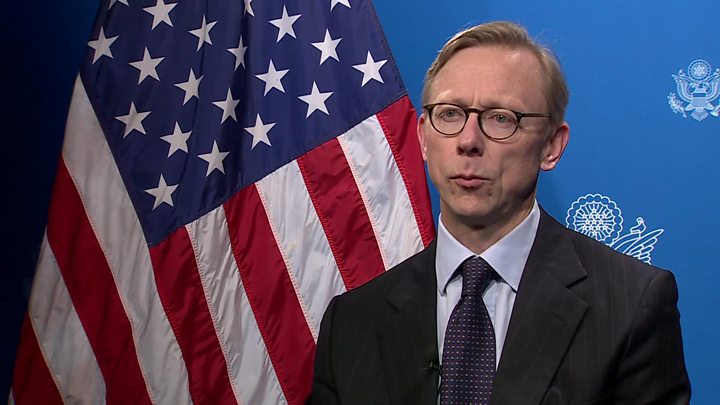International
UAE tanker attacks blamed on ‘state actor’

The United Arab Emirates has told the UN Security Council a “state actor” was most likely behind attacks on four tankers off its coast.
The 12 May attacks bore the hallmarks of a “sophisticated and co-ordinated operation”, according to its report.
The UAE did not say who it thought was behind the attacks, which also targeted vessels from Saudi Arabia and Norway.
The US has accused Iran of being behind the attacks but Tehran denies this and has called for an investigation.
The attacks took place within UAE territorial waters east of the emirate of Fujairah, just outside the strategically vital Strait of Hormuz, in what the UAE called a “sabotage attack”.
They exacerbated long-standing tensions between Iran, and the US and its allies in the Gulf.
What does the report say happened?
According to the UAE-led investigation, which was presented to a closed session of the UN Security Council in New York, the attacks showed a “high degree of sophistication”.
“The attacks required the expert navigation of fast boats” which “were able to intrude into UAE territorial waters”, the report’s preliminary findings say.
Divers were used to attack the ships using limpet mines in order to cause damage but not cause a major explosion, the presentation says.
There were no casualties but Saudi Arabia has said two of its ships suffered “significant” damage. Another tanker was Norwegian-registered, while the fourth was UAE-flagged.

Pressure-cooker atmosphere

There are two aspects to the tensions under way in the Gulf. One practical – what the Americans insist is a real threat from Iran and its allies in the region – and a political one – a push by Washington and its key Gulf allies to paint Iran as an imminent threat to peace.
The latest UAE-led findings on the tanker attacks last month have to be seen in this context.
At the UN they – along with Saudi Arabia and Norway – blamed a “state actor” but stopped short of specifically naming Iran. But then US officials have already said Iran was responsible, with reports that the US Navy tracked a flotilla of small Iranian vessels from which they believe divers operated to mine the ships.
So the accusations are not new as such, though made in a more formal setting.
But they underscore the pressure-cooker atmosphere in the region with any mistake or misunderstanding by either side risking a serious military engagement.

Why is Iran being accused?
The attacks happened at a time of escalating tension between the US and Iran, long-time foes.
They took place days after the US sent warships and bombers to the region in response to what it said was an unspecified plan by Iran to attack US forces in the area.
While it is unclear why Iran would carry out a relatively low-level attack on the multinational tankers, observers have speculated that it could have been to send a signal to forces ranged against it that it is capable of disrupting shipping there without triggering a war.

Responding to the UAE report, the Saudi Ambassador to the UN, Abdallah Y al-Mouallimi, said the kingdom believed “that the responsibility for this action lies on the shoulders of Iran. We have no hesitation in making this statement,” Reuters news agency reported.
US National Security Adviser John Bolton previously said “naval mines almost certainly from Iran” were to blame for the damage, although he provided no evidence to support the allegation.
However, Mr Bolton, long known for his hawkish stance on Iran, denied the Trump administration was seeking to overthrow the Iranian government.
“The policy we’re pursuing is not a policy of regime change,” he told reporters last week during a visit to London. “That’s the fact and everybody should understand it that way.”
Iran’s foreign ministry has rejected the US accusations as “ludicrous” and accused Mr Bolton of being a “warmonger”.
What are the underlying tensions?
At the start of May, Washington ended exemptions from sanctions for countries still buying oil from Iran.
The decision was intended to bring Iran’s oil exports to zero, denying the government its main source of revenue.
US President Donald Trump reinstated the sanctions a year ago after abandoning the landmark 2015 nuclear deal that Iran agreed with six nations – the five permanent members of the UN Security Council and Germany.
Iran has now announced it will suspend several commitments under the deal.
Source: BBC

